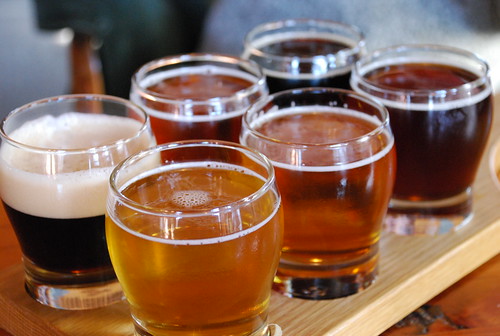
Mmmm….Beer. (Flickr photo cc by afagen)
You don’t exactly need to go out on a limb to imagine that the wine served at Jesus’ farewell dinner was likely a local wine. Certainly it wasn’t something terribly expensive but tasty, moderately-priced, and probably even made by a friend who grew his own grapes.
Sure, locally-produced food and drink was all that was available. But if mass produced and widely distributed wine was actually an option, would Jesus have chosen a bottle that came from a faceless corporation, or one from the town he was staying in?
This is a silly question. I just wanted to link to this story about how a microbrewery in Missoula is being forced to actually scale back their production thanks to a Montana law that seems designed to keep small breweries from becoming medium breweries, effectively keeping them from encroaching on the big beer companies’ business. Asking what Jesus would drink is a good entry point to this discussion (DON’T YOU THINK?).
The law says that if a microbrewery sells its own beer on its own site (in tap rooms or brew pubs), it can only manufacture 10,000 barrels a year. Kettle House, a local Missoula business with dedicated customers in nearby cities, had to decide whether or not to “sell out” and omit their tap room or “sell in,” stopping distribution to three major markets in Montana and keep the tap room. Read more about the decision on the Kettle House blog.
New Glarus Brewing Co. (FAVE) pointed out on their Facebook page, that successful craft breweries like Kettle House are a place for job growth, and rightly asks who such laws like the one in Montana benefit. (The answer: not small businesses.)








